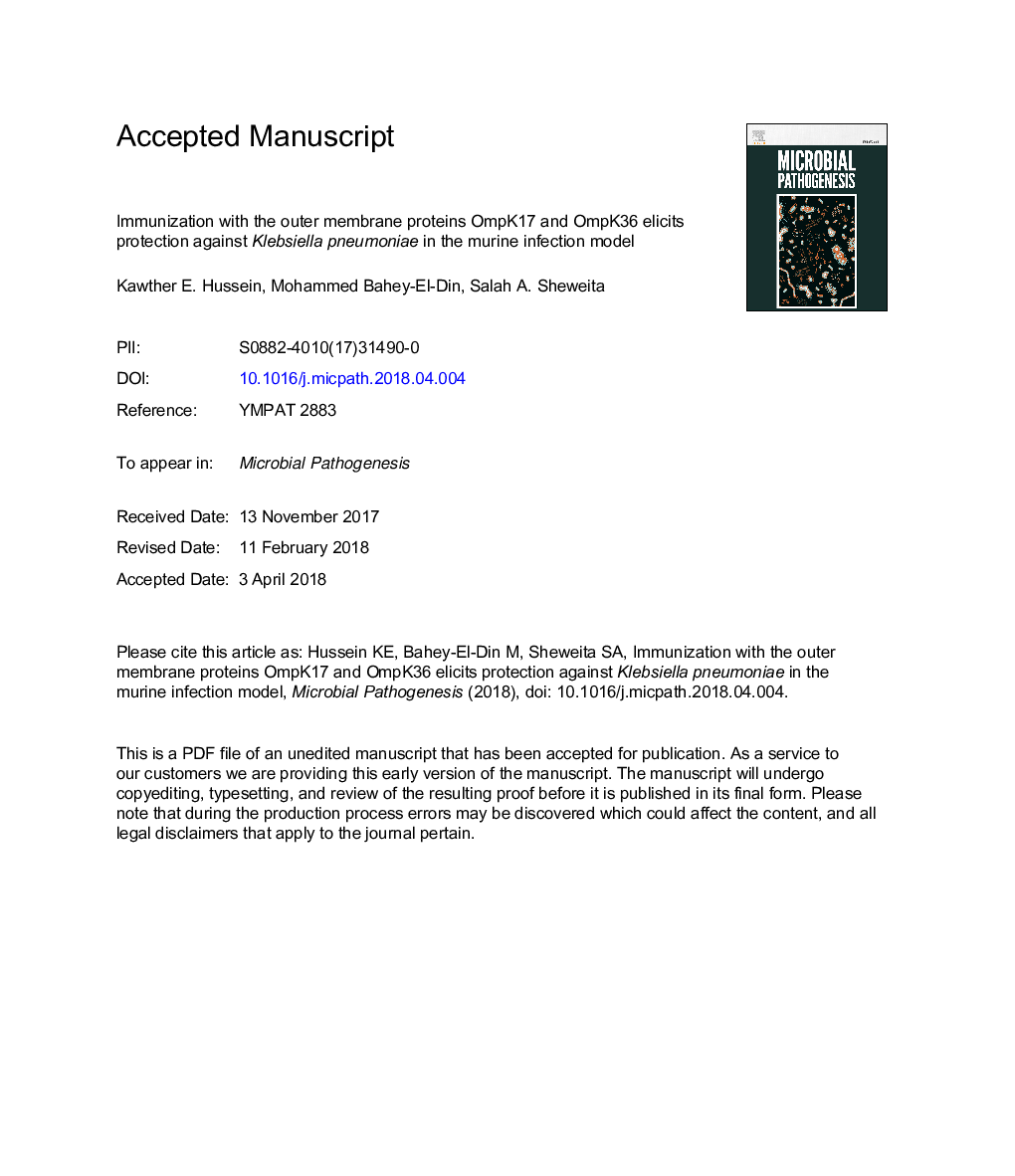| Article ID | Journal | Published Year | Pages | File Type |
|---|---|---|---|---|
| 8749460 | Microbial Pathogenesis | 2018 | 25 Pages |
Abstract
Klebsiella pneumoniae is a Gram-negative bacterium that is increasingly reported as a serious nosocomial and community-acquired pathogen. In the current study, two K. pneumoniae antigens, OmpK17 and OmpK36, as well as their fusion protein cognate F36/17 were investigated as potential vaccine candidates in a murine infection model. Three immunoadjuvants, namely the Gram-positive Enhancer Matrix (GEM) adjuvant, synthetic hemozoin (Hz) adjuvant and incomplete Freund's adjuvant (IFA) were evaluated. Genes of OmpK17 and OmpK36 antigens as well as their fusion protein were cloned in Escherichia coli for recombinant expression. Mice were immunized thrice with the individual recombinant purified antigens adjuvanted with one of the three adjuvants. Two weeks after the last booster, animals were challenged with a lethal dose of K. pneumoniae and immune protection parameters were assessed. Animals immunized with GEM- or Hz-adjuvanted K. pneumoniae antigens did not show significant protection upon bacterial challenge. Animals immunized with subcutaneous IFA-adjuvanted antigens showed the best results with survival percentages of 50, 60 and 50% for groups immunized with OmpK17, OmpK36 and F36/17, respectively. Serum IgG1, rather than IgG2a, antibodies were the most prevalent following vaccination indicating bias towards T helper type 2 (Th2) immune response. Opsonophagocytic assays demonstrated significant percentage killing in case of animals immunized with IFA-adjuvanted antigens. Overall, OmpK17 and OmpK36 are promising vaccine antigens which are worthy of further optimization of the immunization conditions, particularly the used immunoadjuvants, in order to achieve full protection against K. pneumoniae.
Related Topics
Life Sciences
Immunology and Microbiology
Microbiology
Authors
Kawther E. Hussein, Mohammed Bahey-El-Din, Salah A. Sheweita,
